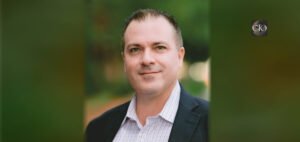For over five decades, Dr. Richard C. Larson has stood at the intersection of theory and application, transforming the field of operations research through a powerful blend of analytical rigor and societal commitment. His journey is one of intellectual endurance and innovation, from studying urban emergency systems to revolutionizing education access for students worldwide. A professor emeritus at the Massachusetts Institute of Technology (MIT), Dr. Larson’s career continues to influence lives even after retirement.
His contributions span a broad spectrum, including the optimization of public service systems, development of educational technologies, and promotion of structured decision-making in daily life. Whether applying queuing theory to reduce wait times or developing blended learning modules accessible to global learners, Dr. Larson has consistently translated complex models into practical solutions. His story serves as both a blueprint and an inspiration for those seeking to align intellectual pursuit with tangible public good.
At the heart of his journey is an unyielding belief in the power of mathematics—not as an abstract discipline but as a tool to elevate human experiences. From early mentorships to global influence, Dr. Larson’s work exemplifies how passion for problem-solving can reshape industries, institutions, and individual lives.
Early Inspiration from Mentorship
Richard Larson credits much of his formative journey to the guidance of Professor Al Drake, who first invited him to MIT. That invitation laid the foundation for what would become a 54-year tenure at the prestigious institution. Under Drake’s mentorship, Larson developed a deep appreciation for model-based thinking and its applications in the real world. This foundation would inform much of his later work across urban systems, education, and public policy.
Larson’s academic journey started in Queens, New York, followed by formative years in Pennsylvania and New Jersey. Eventually, he earned his BS, MS, and PhD—all in electrical engineering—from MIT. These formative academic experiences would go on to fuel his deep commitment to combining theoretical knowledge with actionable results.
His doctoral thesis, Models for the Allocation of Urban Police Patrol Forces, set the stage for a career rooted in using mathematics to enhance public services. He took these ideas further by becoming one of the earliest researchers to apply operations research methodologies to emergency response systems.
Hypercube Queuing Model: Life-Saving Math
One of Dr. Larson’s most influential contributions is the Hypercube Queuing Model, a sophisticated analytical tool that optimizes emergency response systems. This model reshaped how cities like New York deploy police, fire, and medical services, leading to significantly improved response times. By refining resource allocation strategies, Dr. Larson’s model has likely saved countless lives.
His work with ENFORTH Corporation and later Q.E.D. Consulting represents a bold attempt to bring academic findings into mainstream application. These firms were founded to apply rigorous analytical models to real-world challenges—embodying Larson’s belief that the value of research is measured by its practical impact.
The Hypercube Model remains a cornerstone in public service logistics and is still widely studied in operations research curricula. It is a prime example of how mathematical rigor, when combined with a humanitarian mindset, can result in life-saving policies.
Making Education Open and Accessible
Larson’s influence extends beyond emergency services into the realm of global education. As co-founder of MIT BLOSSOMS (Blended Learning Open-Source Science Or Math Studies), he has been instrumental in democratizing STEM education. BLOSSOMS provides free, high-quality math and science video lessons to students worldwide, offering a scalable model for educational outreach.
The initiative was co-created with Professor Dan Frey and Larson’s late wife, Mary Elizabeth Murray. BLOSSOMS videos are available on YouTube and other platforms, and they stand as some of the earliest examples of open-source, blended learning tools. This work reveals Larson’s desire to make complex academic subjects approachable and enjoyable for learners at all levels.
His leadership extended to his role as Director of MIT’s Center for Advanced Educational Services from 1995 to 2003. There, he helped spearhead projects like the Singapore-MIT Alliance for Research and Technology, which sought to use digital platforms for global knowledge exchange.
Leadership in Professional Organizations
Throughout his career, Dr. Larson has held multiple leadership positions in professional societies dedicated to operations research. He served as president of the Operations Research Society of America (ORSA) and the Institute for Operations Research and Management Sciences (INFORMS). His work in these roles emphasized collaboration, innovation, and the dissemination of cutting-edge research across global networks.
In 2002, Larson was named a founding fellow of INFORMS. These roles are more than honorary; they reflect his enduring commitment to elevating the field and mentoring the next generation of operations researchers. Whether leading symposia or advising policy-makers, Dr. Larson continues to advocate for the practical value of operations research.
In 1993, he was elected to the National Academy of Engineering, a recognition of his efforts in both academic and applied settings. This distinction validated his long-standing goal of using mathematics and analytics to better public and private-sector services.
Doctor Queue and the Psychology of Waiting
Among the general public, Dr. Larson is perhaps best known as “Doctor Queue.” He earned this moniker for his extensive work in queuing theory and the psychology of waiting. His research has been featured in outlets such as The Washington Post and National Public Radio, where he explains why we perceive certain waits to be longer than others and how better system design can mitigate that discomfort.
This work connects deeply with daily life, addressing issues ranging from supermarket checkout lines to call center hold times. His insights not only inform business operations but also human behavior and expectations, demonstrating that even the most abstract models can have practical, relatable implications.
Through these efforts, Larson has become a public educator in the truest sense—using mathematics to help people understand and navigate the systems that shape their lives.
Promoting Structured Decision-Making
Dr. Larson’s latest book, Model Thinking for Everyday Life, published by INFORMS in 2023, encapsulates his philosophy on the value of structured thinking. The book is designed for a general audience and explains how analytical frameworks can be applied to everyday choices—from personal finances to professional decisions.
He advocates for the use of models not as rigid tools but as flexible frameworks to improve understanding and foresight. His goal is to make analytical thinking as common in daily life as it is in professional domains. The book serves as both a practical guide and a capstone to his decades-long commitment to applied research.
Larson hopes to expand the book’s reach through additional platforms such as Barnes & Noble and other educational partnerships. The message is clear: everyone, regardless of background, can benefit from model-based decision-making.
Continuing to Influence Post-Retirement
Though officially retired, Dr. Larson remains actively involved in various academic and philanthropic endeavors. He continues to support MIT BLOSSOMS and works with the National Academy of Engineering. His post-retirement work reflects an enduring passion for using intellectual tools to create social good.
He also serves as the Founder and Director of the Learning International Networks Coalition, a professional society committed to using technology to provide quality education at scale. Whether through writing, mentoring, or consulting, Dr. Larson continues to leave an indelible mark on the fields he helped shape.
His advice to young professionals and students entering operations research is simple yet profound: stay open to new ideas, ground your work in personal experience, and never lose sight of the human impact of your research.
Legacy of Applied Excellence
Dr. Richard C. Larson’s career offers a masterclass in the art of applied excellence. From pioneering queuing models that save lives to championing global education initiatives, he has consistently used the language of mathematics to tell a deeply human story. His life’s work proves that rigorous thinking and empathy are not mutually exclusive—in fact, they are most powerful when combined.
As a mentor, researcher, author, and public educator, Dr. Larson’s legacy transcends academic disciplines and geographic boundaries. His approach serves as a reminder that the most impactful innovations often emerge from the meeting point of intellectual passion and practical necessity.
In a world increasingly driven by data and complexity, Dr. Larson’s journey is both a roadmap and a beacon for how to think clearly, act compassionately, and live meaningfully through science.
Read More : Middle East’s Leading Business Leaders Shaping the Future – 2025




